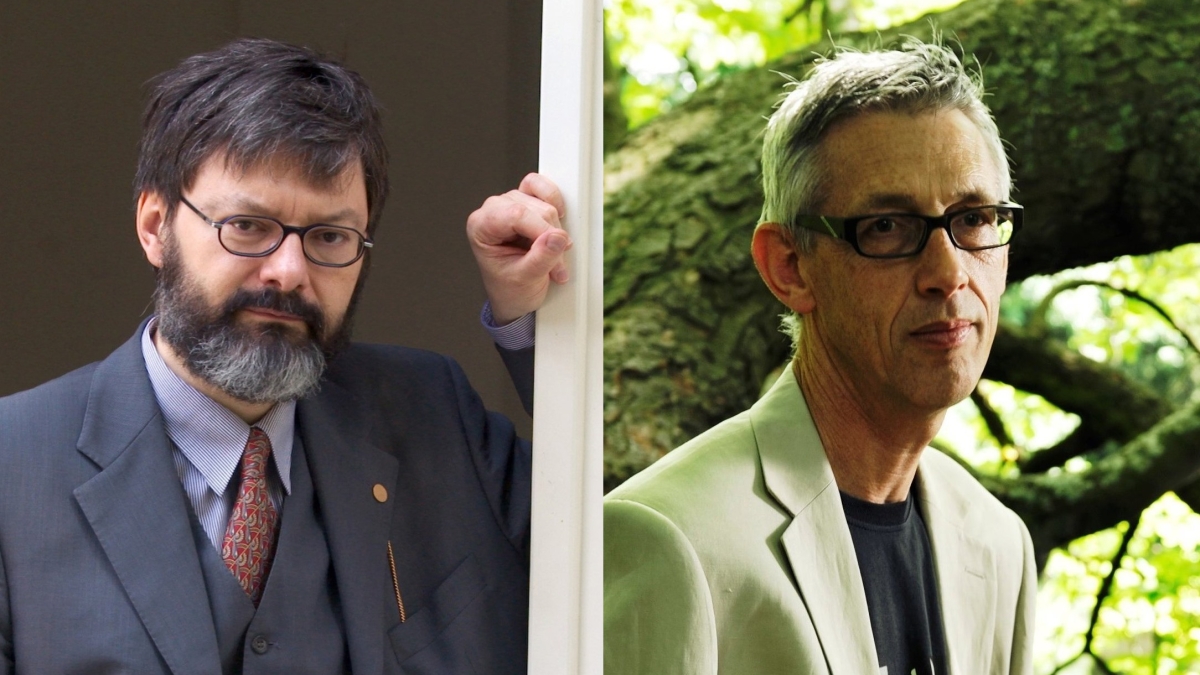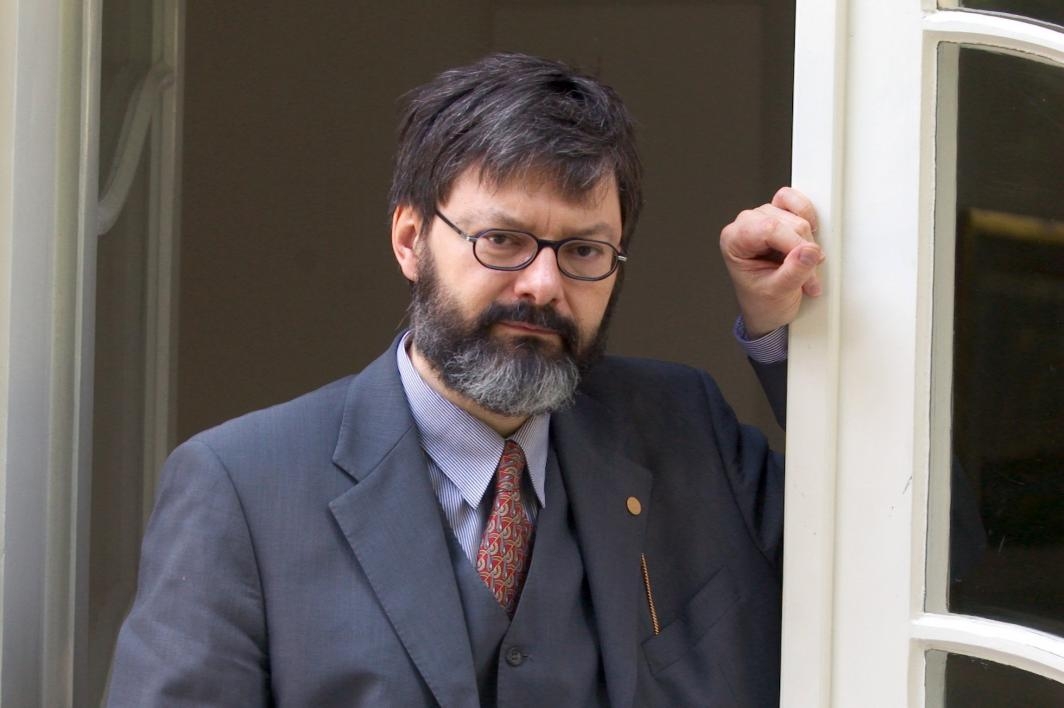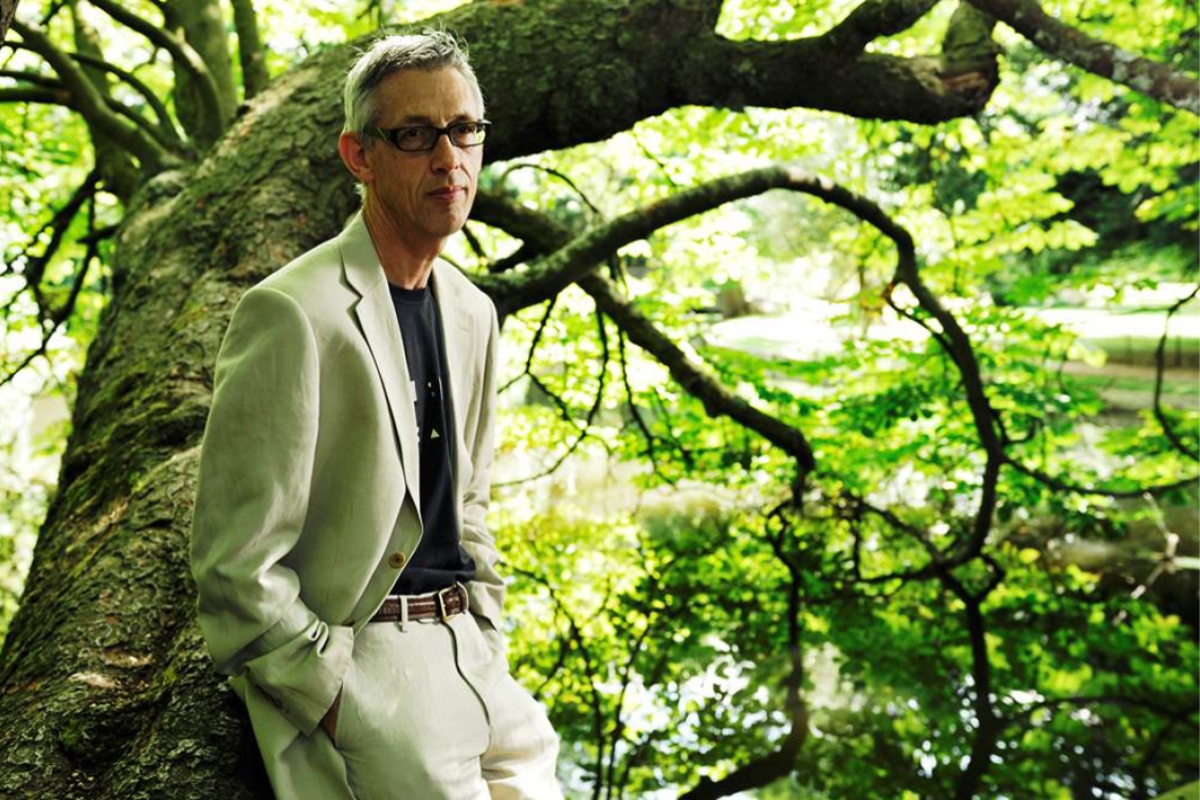Provost’s lectures explore ecowarriors, philosophy and faith

Heinrich Meier and Sir Jonathan Bate headline the Provosts Distinguished Lecture Series on Nov. 4 and Nov. 23, 2015.
Two prominent thought leaders and authors from Europe bring a close to the Provost’s Distinguished Lecture Series for 2015.
On Nov. 4, political philosopher Heinrich Meier speaks on “The Beginning of the Philosophic Life and the Challenge of Faith in Revelation: Reflections on Rousseau’s ‘Rêveries’.”
On Nov. 23, British biographer, Oxford Professor and public intellectual Sir Jonathan Bate speaks about "Ted Hughes: Eco-Warrior, or Eco-Worrier?"
Developed with support from Interim Provost Mark Searle and College of Liberal Arts and Sciences’ Dean of Humanities George Justice, the provost’s series seeks to bring some of the world’s best poets, scientists, philosophers and authors of the human condition to ASU.
“All the challenges — and I mean all of them — faced in the contemporary world are human issues,” Justice said. “Reducing them to technical problems almost ensures that our efforts will fail as much as they will succeed.”
“Humanists, such as Meier and Bate, understand the range of human experience, human thought, human interest, and by including them in research and education we allow ourselves to learn from ourselves and our history,” Justice added.
Meier is the director of the Carl Friedrich von Siemens Foundation, a professor of philosophy with the University of Munich, Germany and permanent visiting professor with the John U. Nef Committee on Social Thought with the University of Chicago. His expertise ranges from philosophy to political science, sociology and biology. He is the author of eight books, including “Carl Schmitt and Leo Strauss: The Hidden Dialogue,” “The Lesson of Carl Schmidt” and most recently, “Jean Jacques Rousseau.” With more than 30 years of the study of Rousseau at play, in his talk Meier examines the nature of the philosophic life and controversial writings on religion by Rousseau in his last work “Les rêveries du Promeneur Solitaire” (“Reveries of a Solitary Walker”). In addition to his talk, he will host a two-day workshop around the topic of “Social Contract and 'Nietzsche’s Zarathustra'." He will also tour facilities and attend meetings with ASU faculty, such as Pulitzer Prize-winner and Regents’ Professor Bert Hoelldobler and Provost Emeritus Robert E. Page Jr. Page, who launched the provost's series last spring, will introduce Meier at the Nov. 4 event at 4 p.m. in the Memorial Union's Pima Room 230 on the Tempe campus.
Bate is a biographer, critic, broadcaster and scholar. He is renowned in the field of ecocriticism, having published what is considered “the first ecological reading of English literature” — his “Song of the Earth.” Previously, in his “Romantic Ecology,” Bates articulated the conservationist influence of William Wordsworth’s poetry; the work has been enormously influential on later Romanticist work on literature and the environment. A provost of Worcester College and professor of English literature at University of Oxford, Bate is also a prominent Shakespearean, as well as public essayist that speaks to wider audiences on topics, such as “How books help us to be better human beings.” He was recently profiled on NPR for his newest publication “Ted Hughes: The Unauthorised Life” that explores the life of Ted Hughes, one of England’s most prominent poets, an avid environmentalist and husband of Sylvia Plath. The book has garnered high praise and is shortlisted for the U.K.’s Samuel Johnson Prize for Non-Fiction for 2015.
Bate will speak about Hughes at 6 pm. on Nov. 23 in Old Main's Carson Ballroom on ASU's Tempe campus.
Meier and Bate are strong advocates for the importance of humanities education. Meier was awarded the Peregrinus Prize, given in recognition of outstanding work in the humanities, by the Bavarian Academy of Sciences in Germany. Bate was knighted for his service to higher education in 2015. In an interview published in British Academy Review in 2014, Bate observed: “One of the reasons for studying the humanities is precisely that the humanities draw our attention to big, valuable, important things that cannot be contained or constrained within a model of economic benefit. Beauty, truth — these are difficult, abstract concepts, concepts that defy quantification.”
“Humanities is about the human experience past, present and future. Sometimes the breadth and understanding of what humanists do get buried in the painstaking research on seemingly narrow topics pursued by our world-leading faculty,” said Justice, who is also a professor in ASU's Department of English. “These speakers coming to ASU to deliver provost’s distinguished lectures broaden our range of thinking, synthesize broad research areas and tackle major issues in research. They invigorate our scholarly community, and we find meaning in our lives through the works of culture that humanists preserve for humanity.”
More information about this series can be found here.
More Arts, humanities and education

ASU instructor’s debut novel becomes a bestseller on Amazon
Desiree Prieto Groft’s newly released novel "Girl, Unemployed" focuses on women and work — a subject close to Groft’s heart.“I…

‘It all started at ASU’: Football player, theater alum makes the big screen
For filmmaker Ben Fritz, everything is about connection, relationships and overcoming expectations. “It’s about seeing…

Lost languages mean lost cultures
By Alyssa Arns and Kristen LaRue-SandlerWhat if your language disappeared?Over the span of human existence, civilizations have…



